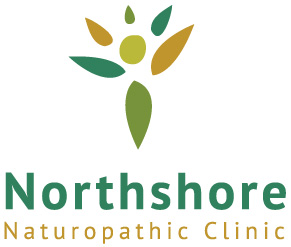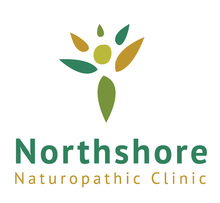By Dr. Matsen/Irene Hayton
Part 1 of this article (November 2006 Comment) discussed simple techniques to help energize you enough to get up on those mornings when you just want to stay in bed and get more sleep. This section provides some tips that will help boost your energy even more, once you arise.
Drink Water
If you haven’t already done so, drink a glass of water to rehydrate yourself (see Part I).
Expose Your Eyes to Sunlight
As soon as you get out of bed, expose your eyes to sunlight by opening your curtains or blinds. The amount of sunlight to which you are exposed affects your body temperature and your sleep hormone levels.
Melatonin is a hormone that’s responsible for promoting sleep. It’s produced in the pineal gland of the brain and in smaller amounts in the retina of the eye. Melatonin is released when you’re exposed to darkness, causing your body temperature to drop and making you feel drowsy. When you expose your eyes to sunlight upon arising, your melatonin levels decrease and your body temperature rises, making you feel more alert and awake.
As your melatonin levels decrease, your serotonin levels increase. Sunlight stimulates the retina of your eye to make serotonin, which in turn activates your pineal gland to make even more of this helpful hormone. Serotonin acts like an “on” switch to stimulate your body into action. It also affects your emotions, giving you confidence and self-esteem. Low levels of serotonin may lead to appetite disorders, rapid mood swings, emotional instability, depression, anxiety, memory loss, learning disorders, physical weakness, and obsessive-compulsive disorders.
As you can see, getting enough natural sunlight (not only upon awakening, but also throughout the day) plays a crucial role in energy levels and emotional stability. So get outside as much as possible and sit near a window when working inside. If you’re finding it difficult to expose your eyes to sunlight—such as when working indoors, or during the winter months when days are shorter and often darker—you may want to invest in full-spectrum lighting and/or a bright light box, a device that produces artificial, high-intensity light.
Move It
Get moving by engaging in aerobic activity. You may feel that the last thing you want to do is exercise, but you’ll find that it will actually provide you with more energy; it gets your blood flowing, bringing oxygen to the cells of your body. Still not convinced? Give it a try—get up and get moving, even if it’s just for 5 to 15 minutes. Once you get into the habit of doing it on a daily basis, you’ll be able to slowly increase the amount of time that you spend exercising.
Go to the gym or head outdoors for a run or brisk walk. You don’t even have to leave the comfort of home to exercise—pop an aerobics video into your VCR and follow along, or hop on an in-home treadmill, stair climber, or stationary bike and get moving. Even just jumping on a rebounder (mini trampoline) for 10 to 15 minutes should rev up your energy and as an added benefit, it helps to clear the lymphatic system.
Getting an aerobic workout shortly after you get out of bed provides many benefits other than increasing your energy levels. It boosts metabolism for the rest of the day and, when you exercise on an empty stomach, your body utilizes stored fat for energy rather than deriving energy from the food you’ve just eaten. By exercising first thing in the morning, you don’t have to try and squeeze in a workout during the rest of your busy day because it’s already done. And exercise in the morning causes a rapid rise in body temperature, making you feel more awake. Exercise also delays the decrease in body temperature that occurs in the evening, so that you’re more alert and less likely to feel a drop in energy.
Tip: Before you go to bed at night, lay out your workout clothes so you can put them on as soon as you get up. Also, have your aerobics video or exercise equipment set up and ready to go. This way you can get started right away, decreasing the chance that you’ll talk yourself out of working out.
Dry Brush Massage
Before you step into the shower, treat yourself to a dry brush massage. Using a loofah, gently brush your skin, starting at the feet and working upwards; always stroke towards your heart. For many people, a dry brush massage promotes energy by increasing blood flow to the surface of the skin and stimulating the lymphatic system, which functions to drain toxic waste from your cells.
Eat Breakfast
Be sure to eat breakfast and include some lean protein. Skipping breakfast is like expecting your car to run without putting gas in it. This important meal provides your body with fuel to create the energy you need to get you going in the morning. Follow the Eating Alive Program for healthy eating to create nutritious, balanced breakfasts.
Skip the Coffee and Opt for Green Tea Instead.
Sure, a cup of coffee in the morning may rev you up, but this effect isn’t long-lasting, nor is it good for your body, particularly your liver. Caffeine causes a temporary surge in blood sugar (glucose) which may provide you with energy, but this surge in glucose causes the pancreas to secrete excessive amounts of insulin, a hormone that helps to regulate blood sugar levels. This in turn leads to a blood sugar crash and your body calls out for more glucose, which the brain requires in order to function. Thus you experience carbohydrate cravings and blood sugar swings.
A healthier alternative is to drink green tea. It has anti-cancer and anti-inflammatory effects, and has been found to aid in fat loss. Although it does contain some caffeine, the health benefits of green tea far outweigh the detriments of the small amount of caffeine that it contains, which can be tolerated by most people. It also contains theanine, an amino acid which inhibits the side effects of caffeine and has a non-drowsy, calming effect on the body.
By incorporating these suggestions into your daily routine along with the guidelines of the Eating Alive Program, you may experience other health benefits in addition to an increase in energy, such as: a loss in body fat; a deeper, more restful sleep at night; fewer mood swings and a more positive outlook on life; and a stronger immune system.


